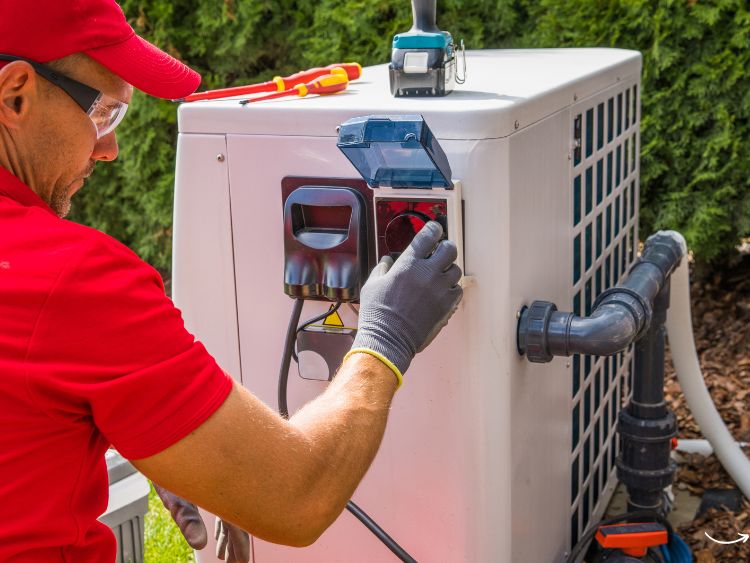Ever walked into a room and felt an immediate sense of comfort? Chances are, a well-designed HVAC system with strategically placed diffusers is doing its job. HVAC diffusers might not be the first thing that comes to mind when you think about indoor comfort, but they play a crucial role in regulating airflow and maintaining a pleasant environment. In this guide, we’ll delve into the ins and outs of HVAC diffusers, exploring what they are, how they work, and why they are indispensable in both residential and commercial settings.
What Is an HVAC Diffuser?
An HVAC diffuser is a component of the heating, ventilation, and air conditioning system that distributes air evenly throughout a room. Unlike simple vents, diffusers are designed to direct airflow in a specific pattern, enhancing both comfort and efficiency. They come in various shapes and sizes, often integrating seamlessly into ceilings, walls, or floors.
Types of HVAC Diffusers
- Ceiling Diffusers: These are the most common type, often found in commercial buildings. They distribute air uniformly in multiple directions.
- Wall Diffusers: Ideal for spaces where ceiling installation isn’t feasible, wall diffusers provide horizontal airflow.
- Floor Diffusers: Common in homes with central heating systems, floor diffusers distribute air from beneath, warming or cooling the space efficiently.
- Linear Slot Diffusers: Sleek and modern, these are often used in architectural designs to deliver a high level of aesthetic appeal along with efficient airflow.
How Do HVAC Diffusers Work?
At the heart of an HVAC diffuser’s function is its ability to manage and direct airflow. When air passes through the ductwork, the diffuser disperses it evenly across the room. This process reduces drafts and eliminates hot or cold spots, ensuring that the entire area maintains a consistent temperature.
Benefits of Using HVAC Diffusers
Improved Air Distribution
HVAC diffusers help to distribute air more evenly than standard vents, ensuring that every corner of the room receives the desired temperature.
Enhanced Comfort
By eliminating drafts and regulating airflow, diffusers create a more comfortable living or working environment.
Energy Efficiency
Efficient air distribution means the HVAC system doesn’t have to work as hard, leading to lower energy consumption and reduced utility bills.
Aesthetic Appeal
Modern diffusers are designed to blend in with the room’s décor, providing a functional yet unobtrusive solution.
Choosing the Right HVAC Diffuser
Selecting the appropriate HVAC diffuser depends on several factors, including room size, layout, and specific HVAC requirements. Here’s a handy checklist to guide your choice:
- Room Size and Shape: Larger rooms may require multiple diffusers to ensure even distribution.
- Ceiling Height: High ceilings may benefit from ceiling diffusers that can project air downwards effectively.
- Aesthetic Preferences: Choose a diffuser that complements the room’s design. Linear slot diffusers, for example, offer a modern look.
- Airflow Requirements: Different diffusers are designed to handle varying amounts of airflow. Ensure the diffuser can manage the volume of air your system produces.
Installation Tips
Proper installation is key to maximizing the benefits of your HVAC diffusers. Here are some tips to ensure a successful setup:
- Placement Matters: Install diffusers in locations that promote optimal airflow. Avoid placing them near obstructions like large furniture or heavy drapes.
- Height Considerations: For ceiling diffusers, ensure they are installed at a height that allows air to circulate effectively throughout the room.
- Professional Help: While DIY installation is possible, hiring a professional ensures that the diffusers are installed correctly and efficiently.
Maintenance and Care
Keeping your HVAC diffusers in top shape is essential for maintaining their efficiency. Here are some maintenance tips:
- Regular Cleaning: Dust and debris can accumulate over time, hindering airflow. Clean the diffusers regularly with a soft cloth or vacuum attachment.
- Check for Damage: Inspect the diffusers periodically for any signs of wear or damage. Replace any broken or malfunctioning parts immediately.
- Professional Servicing: Schedule annual HVAC maintenance checks to ensure the entire system, including the diffusers, is working optimally.
FAQs About HVAC Diffusers
What is the difference between a diffuser and a vent?
A vent simply allows air to pass through, whereas a diffuser directs the airflow in specific patterns to ensure even distribution and comfort.
Can I install HVAC diffusers myself?
While it’s possible to install diffusers on your own, professional installation is recommended for optimal performance and efficiency.
How often should I clean my HVAC diffusers?
It’s advisable to clean your diffusers at least once every three months to prevent dust buildup and maintain efficient airflow.
Are HVAC diffusers noisy?
Quality diffusers are designed to operate quietly. If you notice unusual noise, it could be a sign of a problem that needs professional attention.
Do HVAC diffusers improve air quality?
While diffusers primarily manage airflow, maintaining them can contribute to better air quality by preventing dust and debris from circulating.
Conclusion
HVAC diffusers might seem like a small component of your overall system, but their impact on comfort and efficiency is significant. By ensuring even air distribution, enhancing comfort, and boosting energy efficiency, diffusers play a vital role in creating a pleasant indoor environment. Whether you’re upgrading your home system or managing a commercial building, understanding the importance of HVAC diffusers and choosing the right one can make a world of difference. Regular maintenance and professional installation further enhance their benefits, making them a smart investment for any space.

